If you are in the insurance industry, you know that digital insurance agent tools are a must.
There are so many different insurance tools available that it can be hard to know where to start.
Your insurance agency is juggling social media management, trying to provide an excellent customer service experience, and lead management, to name a few.
This article will explore digital insurance agent tools and how they can help make your life easier.
Why should you care about marketing tools?
As an insurance agent, you should care about marketing tools because they can automate workflows, keep track of your clients, and help you generate more leads.
The digital world is constantly changing, and if you want to stay ahead of the curve, you need to be using the latest digital tools.
Life insurance agents need to be using digital insurance agent tools to improve the overall efficiency of their insurance business.
Tools are like having an employee that never sleeps and can help with things like:
- Automatically sharing your digital insurance agency’s information
- Staying in touch with clients through digital channels
- Generating leads through digital marketing campaigns
If you’re not using digital insurance agent tools, you’re missing out on a significant opportunity to grow your business.
Best Independent insurance agents marketing tools
When choosing the best tools for an independent insurance agent, you want to focus on three main strategies.
- First, you need to focus on your digital marketing efforts and create a website that will capture leads.
- Second, you need to use those leads to start building relationships through email and social media.
- Finally, you need to turn those relationships into sales using the right CRM tool.
There are many different ways to accomplish these things, and we’ll give you the tools to get it done.
Social media marketing tools
Social media is one of the most important digital marketing strategies for a life insurance agent.
Social media tools are a great way to improve customer experience, build relationships, and drive traffic to your website.
There are a few different ways you can use social media for your insurance business:
- Use it to create informative blog posts that answer common questions about insurance.
- Use it to share helpful tips about insurance, both on your personal profile and in relevant groups.
- Use it to run digital marketing campaigns that generate leads and drive traffic to your website.
The best social media platform for an insurance agency is LinkedIn because it’s a professional network where you can connect with potential clients and referral partners.
You can use social media marketing tools like:

Hootsuite
Hootsuite is one of the most respected social media management tools out there. It allows you to schedule posts, track your analytics, and measure your success.
Check out Hootsuite
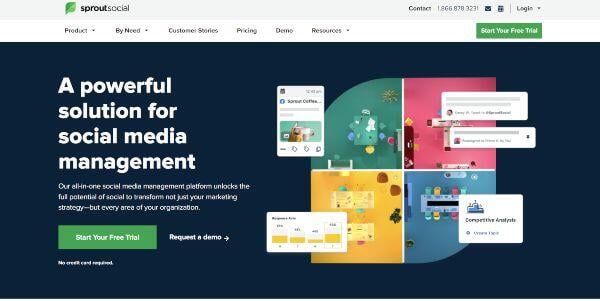
Sprout Social
Sprout is another excellent social media management tool with many features qualified insurance agents will find helpful. For example, it has a CRM feature to track your relationships with clients and potential clients.
Check out Sprout Social
Password manager
A password manager is a digital tool that helps you keep track of all your passwords in one place.
This is important for an independent agent because you likely have multiple accounts for different insurance companies, websites, and software programs.
A password manager can help you:
- Generate strong passwords that are difficult to hack.
- Store all your passwords in one secure place.
- Access your passwords from any device.
Some of the best password managers for the insurance industry are:
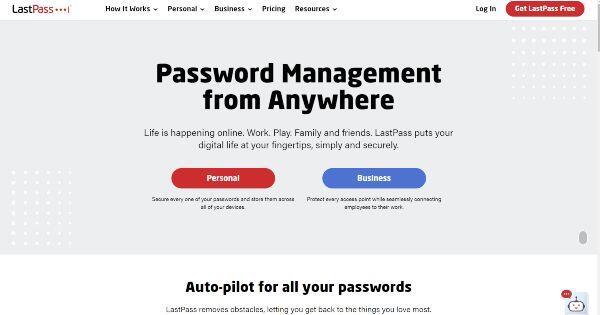
LastPass
LastPass is our favorite password manager because it’s easy to use and has a lot of features agents will find helpful.
For example, it has a password generator, stores passwords in a secure vault, and can be used on any device.
Check out LastPass
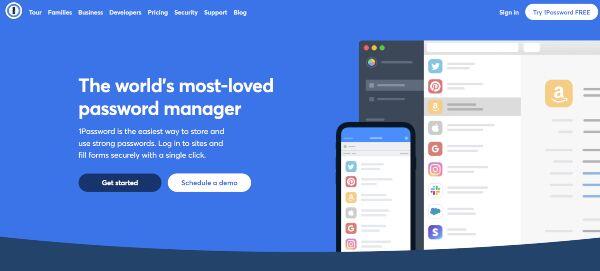
1Password
1Password can’t be left off the list of best password managers because it’s one of the most popular options out there.
In addition, it’s an excellent choice for agents because it has a lot of features, like two-factor authentication and a secure sharing feature.
Check out 1Password
Email marketing tools
Email marketing is a digital marketing strategy that involves sending emails to potential and current clients.
It’s an effective content marketing tactic to stay in touch with your clients, build relationships, and drive sales.
As an insurance agent, you can use email to:
- Send educational information about insurance to potential clients.
- Stay in touch with current clients and keep them updated on policy renewals.
- Send reminders about important insurance dates, like the expiration date of a policy.
- Strengthen customer relationships by sending out personalized communication
A few great options for email marketing tools include:
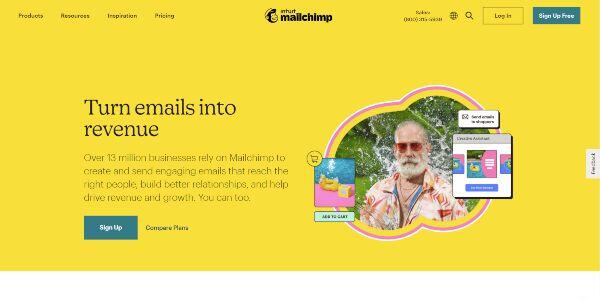
Mailchimp
Mailchimp is one of the most popular emailing tools because it’s easy to use and has a lot of features.
In addition, it’s an excellent choice for agents because it has templates that are specifically designed for insurance emails.
Check out MailChimp
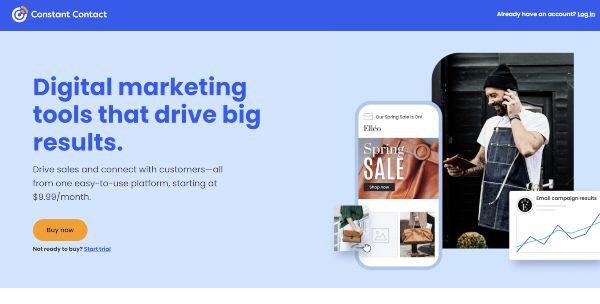
Constant Contact
Constant Contact is another option for insurance agents because it has many features and is easy to use. It also has a wide range of insurance-specific email templates.
Check out Constant Contact
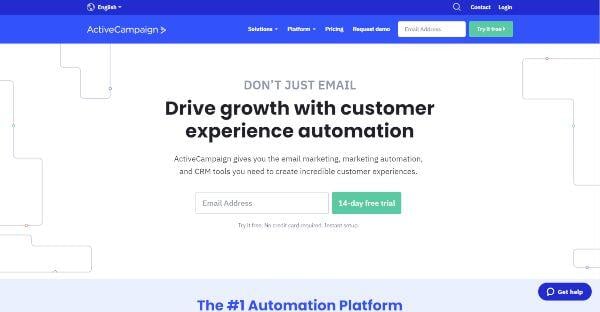
ActiveCampaign
ActiveCampaign is a great choice for insurance agents because of its features, like automation and segmentation.
As an insurance agent, you can use ActiveCampaign to automate your email marketing so that you can focus on other parts of your business.
Check out Active Campaign
Video calls tool
A video call is a digital tool that allows you to have a live conversation with someone using your computer or phone.
Video calls are a great way to stay in touch with clients and build relationships, especially if you cannot meet in person.
As an insurance agent, you can use video calls to:
- Give presentations to potential clients.
- Give policy updates to current clients.
- Train new employees.
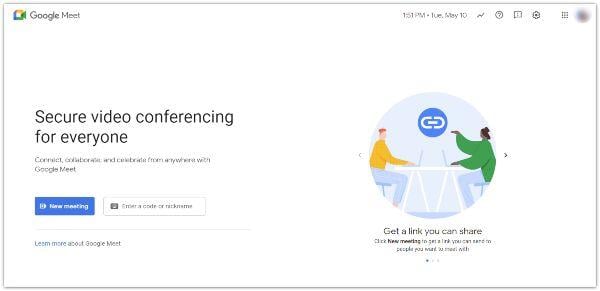
Google Meet
Google Meet is our favorite video conferencing tool. One of our favorite features is the auto background noise canceling feature.
With working remote being more popular, this feature is what agents will find extremely useful when giving presentations or policy updates.
Check out Google Meet
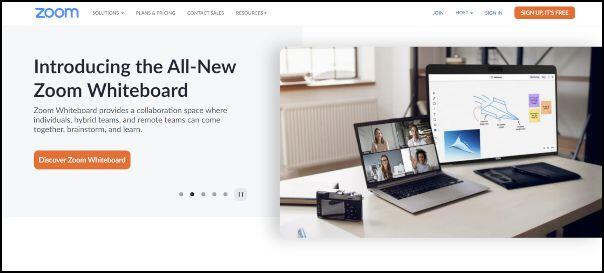
Zoom
Zoom is another great video conferencing tool insurance agents will find helpful. One of the best features Zoom offers the ability to record your meetings.
This can be helpful if you need to refer back to a meeting or if you want to share the recording with someone who wasn’t able to attend.
Check out Zoom
Customer relationship management system
A customer relationship management system or customer relationship manager (CRM) is a digital tool that helps you manage your relationships with clients.
It’s a great way to keep track of your interactions, follow up on leads, close sales, and automate some administrative tasks.
It also provides cross-sell opportunities since you can keep a record of all communication with existing clients questions, concerns, and life events.
As an insurance agent, you can use a CRM software to:
- Store contact information for potential and current clients.
- Keep track of your interactions with clients.
- Schedule follow-up calls and emails.
- Send automated marketing messages.
Some of the best CRMs for your insurance agency are:
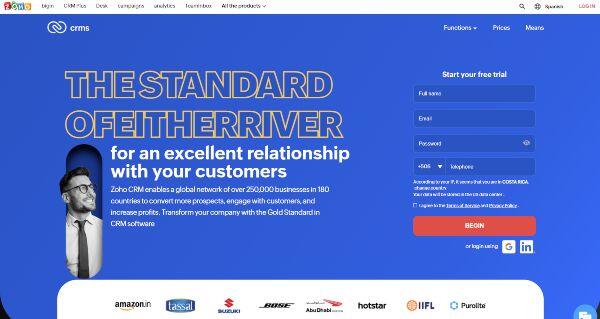
Zoho CRM
Zoho CRM is an excellent choice for insurance agencies. As an insurance agent, you can use Zoho CRM solutions to automate your sales process, so you can focus on building relationships with clients.
Check out Zoho CRM
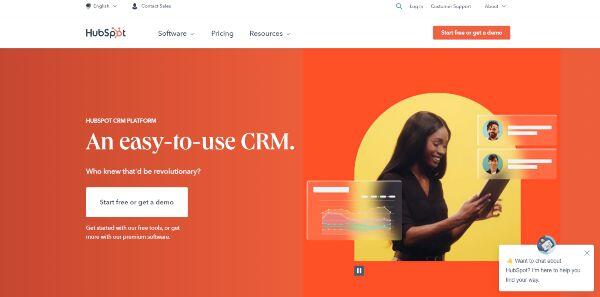
Hubspot CRM
Hubspot CRM is another great CRM solution for agents. It’s free to start, and you can use Hubspot CRM to automate your sales process and stay organized.
It is also great if you plan to scale up, as Hubspot has a lot of great integrations and will be able to grow with you.
Check out Hubspot CRM
Your own website
Having your own website is one of the most important digital tools for agents. Your website is a great way to showcase your services, build trust with potential clients, and lead generation.
Your website should:
- Be designed specifically for insurance agents.
- Include information about your services and how you can help clients.
- Include testimonials from happy clients.
- Include a lead capture form.
Our top overall pick for creating a website:

WordPress Plus Elementor
WordPress is our top pick for insurance agents because it’s easy to use and has a lot of insurance-specific themes and plugins.
Plus, with the Elementor plugin, you can create a professional website without having to code.
Check out Elementor
Cross channel communication tools
A digital tool that allows for seamless communication to streamline your business operations through multiple channels, like email, text, and social media. Cross-channel communication is a great way to stay in touch with clients and build relationships.
As an insurance agent, you can use cross channel communication to:
- Send educational information about insurance to potential clients.
- Stay in touch with current clients and keep them updated on changes to their policy.
- Send reminders about important insurance dates, like the expiration date of a policy.
Some excellent cross channel communication tools for agents include:

Zapier
Zapier is a reliable platform for insurance agents. As an insurance agent, you can use Zapier to automate your sales process between apps, so you can focus on building relationships with clients. For example, you can use Zapier to automate:
- Sending new leads from your CRM to your email marketing tool.
- Backing up your email list to a Google Sheet
- Create a task in your task manager when a client calls.
Check out Zapier
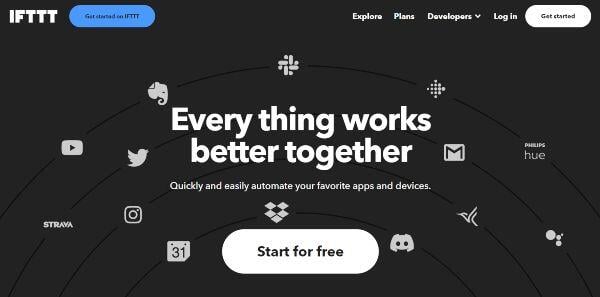
If This Than That
If This Than That (IFTTT) is another excellent cross-channel communication tool for agents.
As an insurance agent, you can use IFTTT to automate your sales process between apps and stay organized. For example, you can use IFTTT to automate:
- Post your blog content to social media.
- Sending you a text message when a new lead is added to your CRM.
- Create a task in your task manager when an insurance policy expires.
Check out IFTTT
Collaboration tool
A digital tool that allows you to work with others on projects, like creating presentations or writing documents. Collaboration tools are a great way to get work done more efficiently and build relationships with team members.
As an insurance agent, you can use collaboration tools to:
- Work on sales presentations with your team.
- Write blog posts with other agents.
- Create marketing materials with your design team.
Some great collaboration tools for insurance professionals include:

Slack.com
Slack provides an easy solution for communication amongst your teams and clients.
You can easily set up different channels for insurance topics, client communication, or even personal messages. You also can search through past conversations, which is excellent for reference later on.
Check out Slack
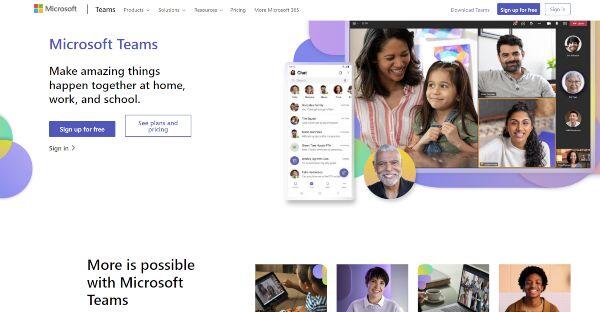
Microsoft Teams
Microsoft Teams is a communication platform that allows you to collaborate with others easily.
You can set up channels for insurance topics, client communication, or even personal messages. You also have the ability to search through past conversations, which is excellent for reference later on.
Check out Microsoft Teams
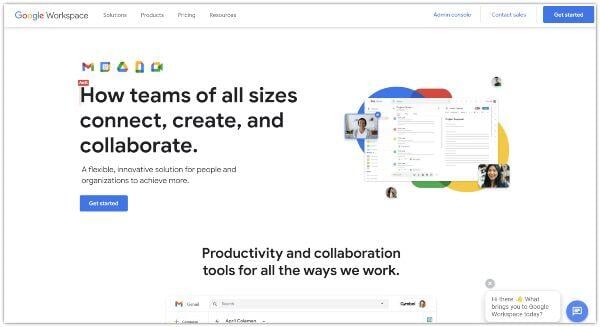
Google Workspace
You get everything from email, real-time messaging, and storage are just some of the ways insurance agencies can use Google Workspace (formerly known as G Suite) to improve team collaboration.
By providing a single platform for all communication and collaboration needs, agencies can reduce the risk of miscommunication and increase efficiency.
Check out Google Workspace
Meeting scheduling
A digital tool that allows you to schedule and keep track of meetings. Meeting scheduling tools are a great way to stay organized and ensure that you don’t miss any important meetings.
As an insurance agent, you can use meeting scheduling tools to:
- Schedule sales presentations with potential clients.
- Schedule policy review meetings with current clients.
- Schedule team meetings.
Some great meeting scheduling tools for agents include:
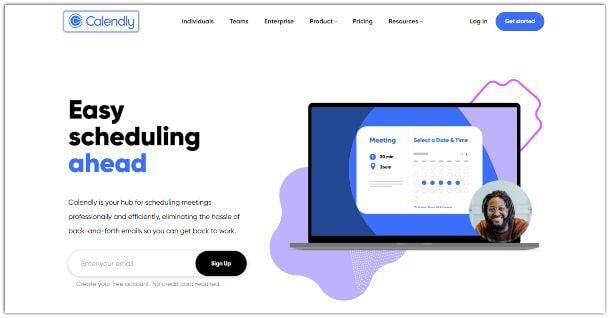
Calendly
Calendly is a great tool for insurance agents who need to schedule many meetings. It allows you to easily share your availability with others and schedule meetings with just a few clicks.
Check out Calendly

Acuity Scheduling
Acuity Scheduling is another excellent tool for agents who need to schedule many meetings. It allows you to easily share your availability with others and schedule meetings with just a few clicks.
Check out Acuity Scheduling
Search engine optimization Tools
SEO tools help you improve your website’s ranking on search engine results pages.
Search engine optimization (SEO) tools are a great way to ensure that potential clients see your website.
You can use SEO tools to:
- Improve the ranking of your website in search engine results pages.
- Track the keywords that potential clients are using to find your website.
- Monitor the competition and see how their websites are ranking.
Some excellent SEO tools for agents include:
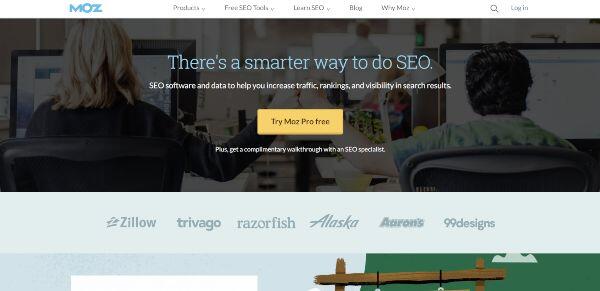
Moz
Moz has been around since 2004 and is one of the most popular SEO tools available. It offers a variety of features, including keyword research, rank tracking, and link analysis.
Check out Moz
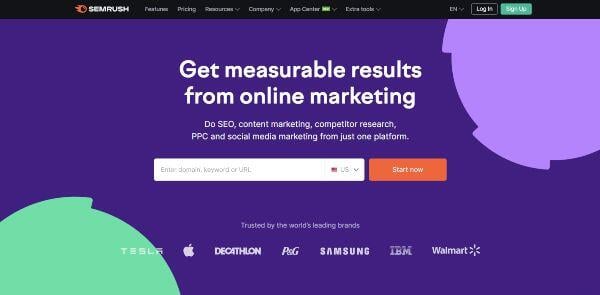
SEM Rush
SEM Rush is another popular SEO tool that insurance agents can use to improve their website’s ranking. It offers a variety of features, including keyword research, competitor analysis, and rank tracking.
Check out SEMRush
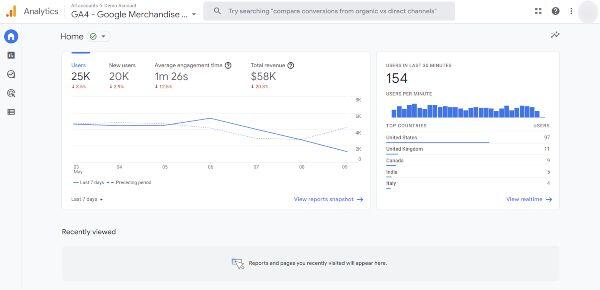
Google Analytics
Google Analytics is a free tool that insurance agents can use to track their website’s traffic. It can help you understand where your website traffic is coming from and how users interact with your website.
Check out Google Analytics
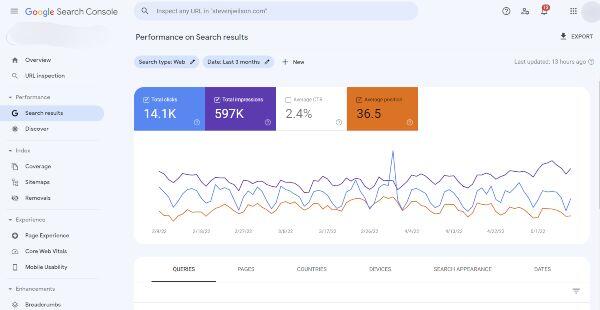
Google Search Console
Google Search Console is a free tool that agents can track their website’s performance in Google search results.
It can help you understand how your website appears in search results and identify any issues that may be affecting your ranking.
Check out Google Search Console
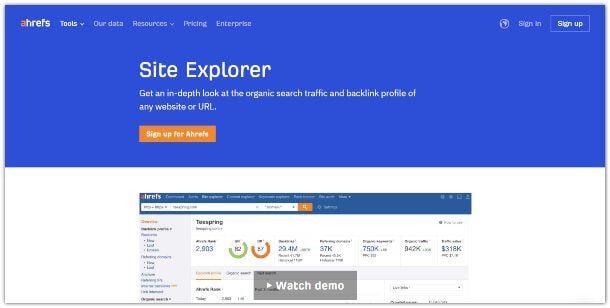
Ahrefs Site Explorer
The free version of Ahrefs Site Explorer can track your website’s backlinks. It can help you understand where your website’s links are coming from and identify potential link-building opportunities.
Check out Ahrefs Site Explorer





